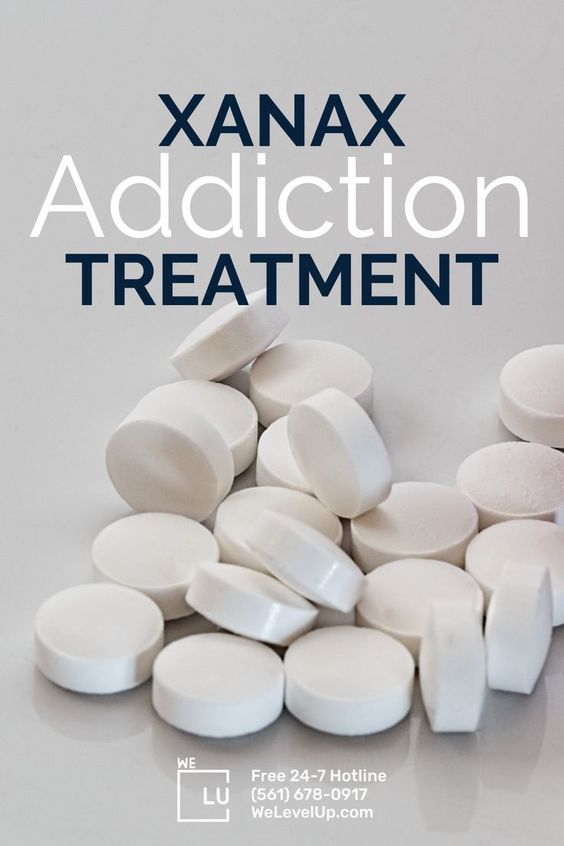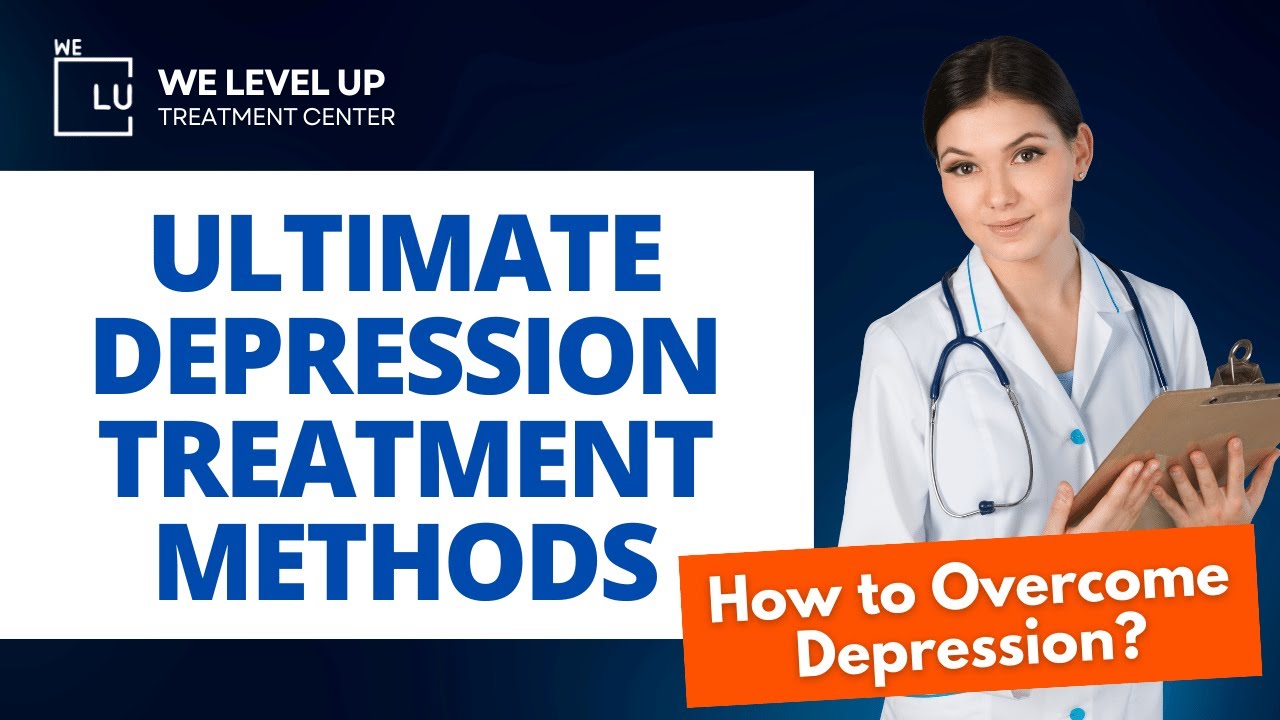Klonopin Side Effects
Klonopin, also known as Clonazepam, falls under anticonvulsant or antiepileptic medications. It serves the purpose of preventing and managing seizures as well as panic attacks. However, it’s essential to be aware of its potential for addiction, as cautioned by the U.S. Food and Drug Administration (FDA). Individuals using Klonopin may develop both physical and psychological dependence on the drug, making it risky to abruptly stop usage due to the associated dangerous side effects and withdrawal symptoms.
Attempting to quit Klonopin “cold turkey” without proper support is strongly discouraged. The detoxification process for Klonopin can pose severe risks and may even be potentially fatal. Consequently, seeking medical treatment and supervision is imperative for a safe and controlled withdrawal.
According to data from the Substance Abuse and Mental Health Service Administration (SAMHSA) [1], spanning the years from 2005 to 2011, nearly a million emergency department visits (an estimated 943,032) were linked to benzodiazepines. These visits involved the use of benzodiazepines either alone or in combination with opioid pain relievers or alcohol, excluding other substances.
If an individual grapples with Klonopin addiction, they may undergo withdrawal symptoms like nausea and anxiety. These symptoms arise due to the chemical dependence the brain and other bodily systems develop on the drug for regular functioning. Under such circumstances, seeking Klonopin detox with professional medical assistance is strongly recommended. The drug is sometimes abused for its soothing effects, offering a misleading sense of relief. Notably, it takes as little as three weeks to establish a dependence on Klonopin, compelling users to continue its consumption to stave off withdrawal symptoms.
Even when adhering to prescribed usage, Klonopin and other benzodiazepines can elicit withdrawal symptoms within just 2-3 weeks of consistent use. Prolonged abuse of these medications heightens the risk of encountering severe withdrawal syndrome. Given the discomfort and challenges associated with managing withdrawal symptoms independently, enrolling in a detox program is a prudent consideration. Klonopin detox serves as a specialized treatment process designed for individuals dealing with acute intoxication and withdrawal.
Klonopin Uses
What Is Klonopin Used For?
Clonazepam is utilized to prevent and manage seizures, known as an anticonvulsant or antiepileptic drug. Additionally, it is prescribed to treat panic attacks. Operating by calming the brain and nerves, clonazepam falls within the benzodiazepine class of drugs.
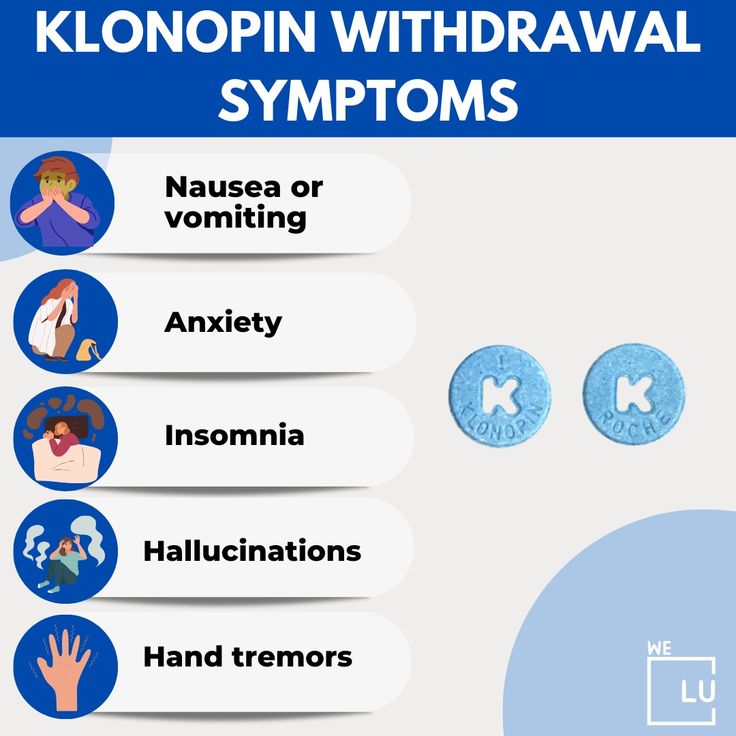
Skip To:
Learn More:
Before commencing clonazepam and with each refill, carefully read the Medication Guide provided by your pharmacist. Any inquiries can be directed to your doctor or pharmacist.
Follow your doctor’s directions for oral consumption, typically 2 or 3 times daily. Dosage considerations include your medical condition, age, and treatment response. For children, weight is a determining factor in dosage. Older adults generally initiate treatment with a lower dose to mitigate potential side effects. Adhere to the prescribed dosage, avoiding self-adjustment in frequency or duration.
Consistency in medication intake enhances its efficacy. Establish a routine by taking it at the same times each day. Consult your doctor before discontinuing the medication, as sudden cessation may exacerbate certain conditions. If prolonged use diminishes its effectiveness, discuss this with your doctor.
While beneficial for many, clonazepam carries a risk of addiction, particularly for those with substance use disorders. Adhere strictly to the prescribed dosage to minimize this risk. If you have various seizure disorders, be vigilant for potential exacerbation initially and promptly notify your doctor if this occurs. Adjustments to other medications may be necessary to manage seizures effectively.
Inform your doctor if your condition persists or worsens.
If you’re struggling with klonopin addiction, reclaim your life today! Call We Level Up Texas Treatment Center 24/7 for a free consultation.
Get Help. Get Better. Get Your Life Back.
Searching for Accredited Drug and Alcohol Rehab Centers Near You? We Level Up Texas Is Opening Soon!
Even if you have failed previously and relapsed, or are in the middle of a difficult crisis, we stand ready to support you. Our trusted behavioral health specialists will not give up on you. When you feel ready or just want someone to speak to about therapy alternatives to change your life call us. Even if we cannot assist you, we will lead you to wherever you can get support. There is no obligation. Call our network hotline today.
FREE Addiction Hotline – Call 24/7Klonopin Indications
Klonopin, also known as Clonazepam, is an approved medication used to address a spectrum of disorders, including:
- Epileptic seizures
- Anxiety disorders
- Mania
- Sleeping disorders
- Migraine headaches
- Hyperekplexia (excessive startle response)
- Acute psychosis
- Alcohol withdrawal syndrome
- Restless leg syndrome
- Nighttime teeth grinding
Despite its diverse applications in treating the mentioned disorders, Klonopin is susceptible to misuse. Prolonged usage may result in an individual developing tolerance to the drug. Those with a history of addiction to other substances are at an increased risk of developing dependence on Klonopin, fostering its potential for abuse.
Klonopin Side Effects by Likelihood and Severity
Common Side Effects Of Klonopin
- Muscle Weakness
- Indigestion
- Drowsiness
- Inducing Of A Relaxed Easy State
- Dizziness
- Low Energy
- Loss Of Muscle Coordination
- Slurred Speech
Infrequent Klonopin Side Effects
- Confusion
- Behavioral Problems
- Abnormal Nervous System Function Affecting Alertness
- Throat Irritation
- Bronchitis
- The Inability To Have An Erection
- Cough
- Diarrhea
- Intense Abdominal Pain
Klonopin Withdrawal
An individual requiring Klonopin detox typically experiences both physical and psychological dependence or addiction to the drug. Dependence indicates that the body has adapted to the presence of the drug, necessitating continuous use to maintain a sense of normalcy and avoid Klonopin withdrawal effects.
With prolonged use, tolerance can develop, compelling individuals to increase the substance intake to achieve the same desired effects. The intensity of withdrawal symptoms varies based on factors such as drug dependency, duration of use, and the individual’s psychological state. Withdrawal effects can persist for up to 90 days.
Abruptly discontinuing or reducing the dosage often leads to withdrawal, with symptoms including:
- Shaking
- Headaches
- Queasiness
- Throwing up
- Lightheadedness
- Stomach Discomfort
- Perplexity
- Nervousness
- Illusions
- Exhaustion
- Melancholy
- Perspiring
- Contemplations of self-harm
- Convulsions
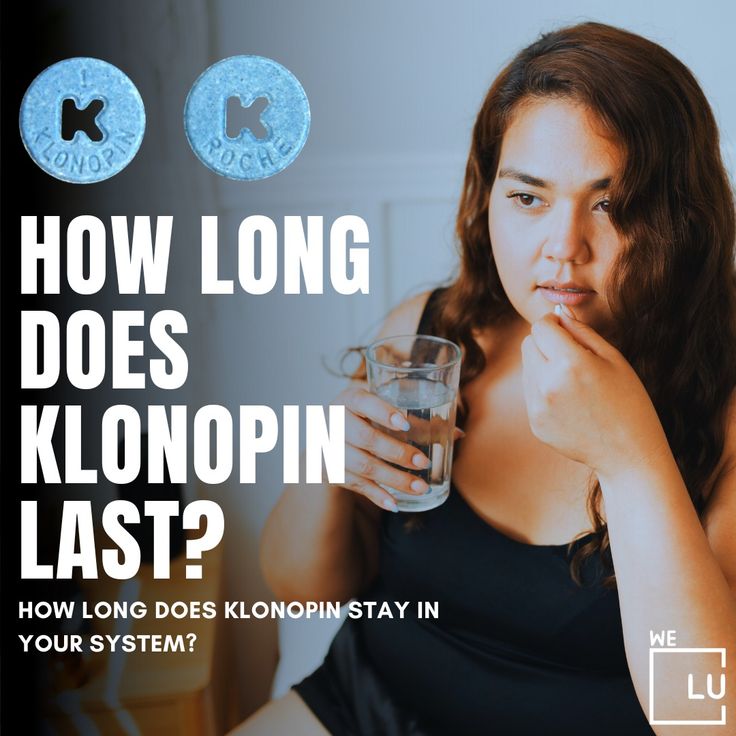
Are you or somebody you know at serious risk of an overdose because of drug or alcohol abuse? If so, please call 911 right away. There are addiction rehab center addiction hotlines that can help guide you to proper local therapists & facilities.
SAMHSA TREATMENT HELPLINE
Struggling with substance use disorder? SAMHSA’s Addiction Treatment Helpline can connect you with proper help. [getyourlifeblubgsamsha phoneplain="8445971011" phone="(844) 597-1011"]
DRUG or ALCOHOL POISON CONTROL
If you’re experiencing or witnessing a drug- or alcohol-related poisoning, the poison control hotline can help. [getyourlifeblubgsamsha phoneplain="8445971011" phone="(844) 597-1011"]
How To Use Klonopin For Anxiety?
Benzodiazepines, including Klonopin, work to slow electrical activity in the brain, alleviating feelings of anxiousness. The precise mechanism through which Klonopin mitigates panic is not fully understood, but it is believed to involve the activation of the inhibitory neurotransmitter gamma-aminobutyric acid (GABA). By binding to GABA receptors, benzodiazepines induce a calming effect on the brain.
In the treatment of Social Anxiety Disorder (SAD), benzodiazepines are often combined with antidepressants, such as selective serotonin reuptake inhibitors (SSRIs), which are considered primary treatments for SAD. Klonopin may be introduced if an individual does not respond favorably to an SSRI alone.
Due to its rapid onset of action, Klonopin can be used on an as-needed basis, such as during episodes of performance anxiety before significant presentations or when facing unfamiliar social situations. However, considering the potential for dependence, prescriptions for anti-anxiety medications like benzodiazepines are typically limited to short-term use.
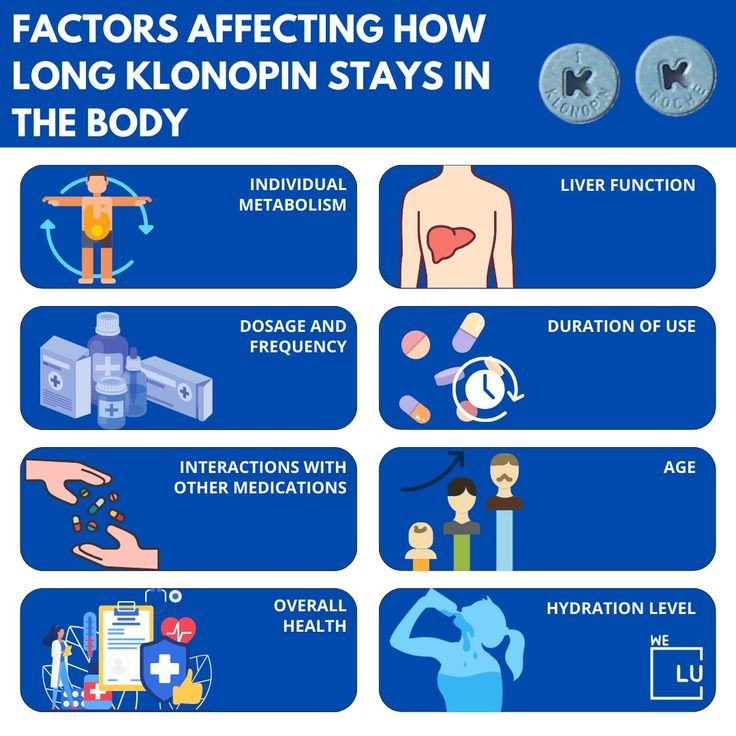
Klonopin Overdose
The incidence of overdose deaths related to Klonopin has surged by over 500% in recent decades. The well-documented abuse potential of these drugs is concerning. Surprisingly, Klonopin overdoses are not exclusive to individuals intentionally misusing the medication. In numerous cases, such incidents occur among patients who are adhering to their Klonopin prescriptions precisely. The question arises: How does this happen?
Possible Causes of Klonopin Overdose
Klonopin exhibits a slower onset of action but boasts a prolonged duration compared to other benzodiazepines. The delayed onset may lead users to consume more than the prescribed dosage, compounded by Klonopin’s extended presence in the body, elevating the risk of unintentional overdose.

Get Your Life Back
Find Hope & Recovery. Get Safe Comfortable Detox, Addiction Rehab & Dual Diagnosis High-Quality Care.
FREE Addiction Hotline – Call 24/7Signs & Symptoms of Klonopin Overdose
- Ataxia (lack of control over body movements)
- Moist skin
- Unconsciousness
- Drowsiness
- Dilated pupils
- Shallow breaths
- Slurred speech
- Weak yet rapid pulse
The intensity of these symptoms may differ, influenced by factors akin to their metabolism. However, the likelihood of them becoming life-threatening significantly increases when Klonopin is combined with alcohol or other substances.
Klonopin Detox Timeline
Days 1-3
The first signs of Klonopin Detox appear one to three days after the last dose. Commonly known as withdrawal. Mild anxiety and other mood changes start becoming noticeable. Falling asleep or getting a whole night’s rest may also be harder.
Days 7-14
Withdrawal symptoms from Klonopin Detox start to peak in one to two weeks from the last dose. Anxiety and irritability are typical during this time. Also, those who quit cold turkey may experience intense body tremors, hallucinations, or seizures.
Weeks 3-4
Withdrawal symptoms start to fade in three to four weeks. It is still expected to have symptoms like anxiety during this time. Some days may be harder than others, but the worst of Withdrawal is usually over at this point.
Months 2+
Mild withdrawal symptoms are still possible up to three months after the Klonopin detox recovery. Also, those with severe addictions are most likely to continue having noticeable symptoms. Tapering down a user’s Klonopin dosage can prevent prolonged symptoms.
Initiating the recovery journey, Klonopin detox serves as the primary phase to help individuals cease the use of the drug safely. Moreover, under the guidance of a supervised detox program, the process aids in effectively managing both the physical and psychological repercussions associated with withdrawal as the body eliminates the substance.
The Dangers of Klonopin Detox at Home
Conducting Klonopin detox at home poses potential harm, given the risks associated with Klonopin withdrawal. If an individual encounters withdrawal complications such as seizures, depression, anxiety, or other mental health symptoms, immediate access to necessary medical care may not be available. Furthermore, an individual unable to endure withdrawal symptoms might relapse, perpetuating the cycle of addiction.
Typically, withdrawal symptoms from long-acting benzodiazepines like Klonopin may not manifest until a week after discontinuation. These symptoms tend to intensify and reach their peak in the second week, diminishing substantially during the third and fourth weeks. The duration of detox varies among individuals, influenced by factors such as dosage, duration of use, concurrent use of other substances, and individual physical constitution. Notably, those who have consumed high doses of Klonopin over an extended period face an increased risk of severe withdrawal symptoms, including seizures and delirium. It is imperative that Klonopin detox is supervised by a competent medical and clinical team.
Discover professional help from We Level Up Texas dual diagnosis addiction rehab and mental health therapists. Start getting support with a free call to our addiction hotline.
Medically-Assisted Klonopin Detox
Individuals who have used Klonopin over an extended period or in conjunction with other substances may encounter a diverse range of withdrawal symptoms when attempting to discontinue use. Introducing a substitute drug might mitigate the impact of withdrawal, but this approach requires careful monitoring by medical professionals to ensure safety.
In general, a gradual reduction is often considered the safest method for withdrawing from Klonopin, although this approach may not always be suitable. Rapid detoxification, where Klonopin use is abruptly halted to prevent withdrawal onset, is sometimes recommended by doctors. This process typically involves the use of a selective benzodiazepine receptor antagonist, affecting the same receptors as Klonopin but without eliciting the same withdrawal symptoms.
Successful recovery from Klonopin addiction involves not only a comprehensive detox but also further treatment to address the lingering effects of addiction. Opting for medically supervised detox enhances the chances of a successful transition to rehabilitation facilities, which provide a secure and supportive environment for individuals recovering from addiction.
Therapeutic approaches such as Cognitive Behavioral Therapy (CBT) and Motivational Interviewing (MI) are valuable tools in helping individuals overcome Klonopin addiction. These sessions not only aid in understanding the root causes of addiction but also impart skills to avoid triggers and manage stressors associated with the addiction.
Opening Soon! First-Class Facilities & Amenities
World-Class High-Quality Addiction & Mental Health Rehabilitation Treatment
Coming Soon! Rehab Centers TourRenowned Addiction Centers. Serene Private Facilities. Inpatient Rehab Programs Vary.
FREE Addiction Hotline – Call 24/7Proven recovery success experience, backed by a Team with History of:
- 15+ Years Experience
- 100s of 5-Star Reviews
- 10K+ Recovery Successes
- Low Patient to Therapist Ratio
- Onsite Medical Detox Center
- Comprehensive Dual-Diagnosis Treatment
- Complimentary Family & Alumni Programs
- Coaching, Recovery & Personal Development Events
We Level TX Klonopin Side Effects Treatment Center
The We Level Up TX Klonopin Side Effects Treatment Center is prepared to provide assistance. Our treatment therapy addresses underlying issues such as Klonopin Addiction and Klonopin Side Effects, often contributing to detrimental behaviors. Taking the initial step to seek the help you rightfully deserve can be transformative.
Recognizing the direct interplay between behavioral disorders and co-occurring addiction diagnoses, We Level Up Texas is committed to establishing a supportive environment through our mental health treatments, fostering a sense of worth. Contact us now for a complimentary mental health assessment!
Inpatient medical detox and residential primary addiction treatment may also be accessible at our affiliated facility, Level Up Treatment Texas.
Klonopin Clonazepam Truth About the Anxiety Debilitating Addictive Drug Exposed!
Sources
[1]SAMHSA – https://www.samhsa.gov/data/sites/default/files/DAWN-SR192-BenzoCombos-2014/DAWN-SR192-BenzoCombos-2014.pdf
- Garakani A, Murrough JW, Freire RC, et al. Pharmacotherapy of anxiety disorders: Current and emerging treatment options. Front Psychiatry. 2020;11. doi:10.3389/fpsyt.2020.595584
- National Library of Medicine. Clonazepam. Klonopin Side Effects
- U.S. Food and Drug Administration. Klonopin Side Effects FDA requiring Boxed Warning updated to improve safe use of benzodiazepine drug class.
- Roy-Byrne P. Klonopin Side Effects Treatment in nonresponsive patients with social anxiety: Back to the future with benzodiazepines. AJP. 2014;171(1):1-4. doi:10.1176/appi.ajp.2013.13101304
- Blanco C, Bragdon LB, Schneier FR, Liebowitz MR. The evidence-based pharmacotherapy of social anxiety disorder. Int J Neuropsychopharmacol. 2013;16(1):235-249. doi:10.1017/S1461145712000119
- National Institute of Mental Health. Social anxiety disorder: More than just shyness.
- Sperry L. Mental health and mental disorders: an encyclopedia of conditions, treatments, and well-being.
- U.S. Food and Drug Administration. Grapefruit juice and some drugs don’t mix.
- U.S. Food and Drug Administration. Safe disposal of medicines.
- Kaczkurkin AN, Foa EB. Cognitive-behavioral therapy for anxiety disorders: An update on the empirical evidence. Dialogues Clin Neurosci. 2015;17(3):337-346. doi:10.31887/DCNS.2015.17.3/akaczkurkin

